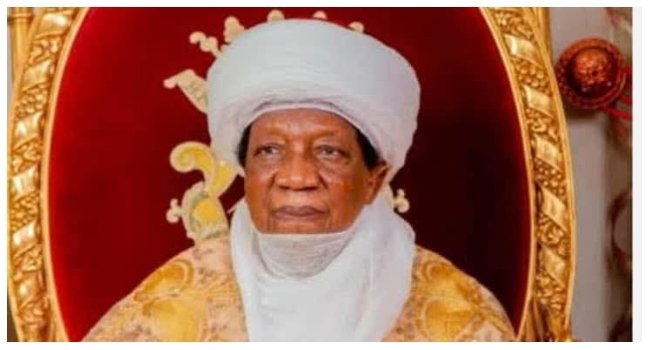KEBBI State was thrown into mourning on Saturday night following the death of the Emir of Zuru, Major General Muhammadu Sani Sami II (rtd), who passed away at the age of 81 in a London hospital after a brief illness.
The news of his passing was confirmed in separate statements by the Kebbi State Government on Sunday. The Chief Press Secretary to the Governor, Ahmed Idris, and the State Commissioner for Local Government and Chieftaincy Affairs, Alhaji Garba Umar-Dutsinmari, both described the late Emir as a towering traditional ruler and elder statesman who devoted his life to the service of his people and the nation.
Born in 1944, Maj-Gen Muhammadu Sani Sami II was not only a revered monarch but also a distinguished soldier.
He served as the Military Governor of Bauchi State during the administration of General Muhammadu Buhari between 1984 and 1985. His tenure was marked by discipline, development initiatives, and a reputation for integrity, values he carried into his reign as Emir of Zuru.
Governor Nasir Idris, who received the news of the monarch’s death with “deep shock,” described him as “a father figure, a leader full of wisdom, and a man who always had the interest of his people at heart.”
In its condolence message, the Kebbi State Government noted that the Emir’s contributions to peace, unity, and development in the Zuru Emirate and across Kebbi State would never be forgotten.
“The government extends its heartfelt condolences to the immediate family of the late Emir, the Zuru Emirate Council, the people of Zuru, and the entire people of Kebbi State. May Almighty Allah forgive his shortcomings and grant him Aljannatul Firdaus,” the statement read.
The late Emir is survived by four wives and seven children. Burial arrangements, according to the state government, will be announced in due course.
The death of Maj-Gen Muhammadu Sani Sami II marks the end of an era for the Zuru Emirate, a key cultural and historical center in Kebbi State.
His passing leaves behind not just a throne, but a legacy of military service, traditional leadership, and commitment to the welfare of his people.






